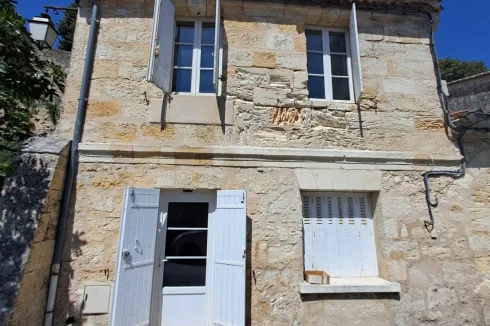Declaration of Savings and Investment Income in France 2020
Thursday 14 May 2020
Most of those with savings and investment income in France will pay less tax if they opt out of the single rate tax.
Since 2018 a flat-rate tax has been in place for bank savings interest and investment income, such as dividends and assurance vie. Rental income is not included.
The tax is called Prélèvement Forfaitaire Unique (PFU), and is a fixed rate of 12.8%. In addition, social charges of 17.2% are payable, making a combined rate of 30%.
The tax is imposed at source by banks and financial institutions, except for capital gains on share sales and assurance vie, which are declared with your income tax return. So, on every €100 of income earned, €30 will be deducted for tax and social charges, leaving you €70.
You can request your bank or financial institution not to impose at source, subject to maximum income thresholds, which we set out in Taxation of Investment Income in France.
If you have not done so, it is still possible to later opt to be taxed using your marginal rate of income tax. This would mean that all your investment income and capital gains would be taxed in this way; you cannot pick and choose.
Clearly, therefore, if because of your total income you pay no income tax, you would be better off opting to use income tax scale rates, as you would be relieved of the need to pay 12.8% tax on the income. Such an option may also often be appropriate for those taxed at the first income tax rate of 14%.
The option for scale rates may also be better for those earning dividend income, due to the 40% abatement and the deductibility of social charges that then applies. Neither the abatement or the partial deduction of social charges is available under the PFU.
According to the French government, last year only 800,000 households opted out of the flat-tax, when it would have been beneficial for around 8 million to have done so.
Tax Declaration
The relevant boxes for declaring investment income are in Section 2 of Form 2042. For most households that will be in Box 2TR (Intérêts et autres produits de placement à revenu fixe), but there are boxes for different investment products.
If you have already completed a tax return in France, then for investment income from France the sums will already have been entered by the tax authority, from information supplied to them by banks and financial institutions.
Investment income from abroad will not be given, so you will need to enter it here. Income from abroad will also need to be entered on the revelant sections in Form 2047.
In Section 3 of F2042 you will need to enter your capital gains and losses.
Provided you are not making the income tax return for the first time, for France based savings and investment income, the tax credit granted under the PFU will already be entered on your declaration by the tax authority, in Box 2CK (Crédit d’impôt égal au prélèvement forfaitaire non libératoire) of the main Form 2042.
The tax credit for investment income from abroad and will not have entered on the form by the tax authority unless previously declared. Note that tax free investments in the UK such as ISAs, are taxable in France.
If you think you will pay less by opting out of the PFU, you need to adopt the following steps:
i. Go to the main tax return Form 2042;
ii. Enter your investment income in the relevant boxes in Section 2 as above or correct the sum that may have already been entered; capital gains are entered in Section 3, Box 3VG/3VH.
iii. Go to Section 2.1, 'Revenus des valeurs et capiteaux mobiliers' where you need to indicate that you wish to opt be taxed using income tax scale rates.
iv. You need to tick the Box 2OP to opt for income tax scale rates - 'Vous optez pour l’imposition au barème de l’ensemble de vos revenus de capitaux mobiliers et de vos gains de cession de valeurs mobilières'.
The government have advised that, exceptionally this year, those who did not opt out of the PFU last year can elect to do so retrospectively, by writing to them via the messagerie in your on-line income tax account (impôts.gouv.fr.)
Social Charges
There is also another more general reason why the flat-tax may not be a good choice for many expatriates.
This is because of legal changes that have occurred to the liability of EEA residents to the social charges, which have been abolished for all those who have social security cover through another Member State. We considered these changes in our article Reform of Social Charges.
This obviously applies to non-residents living elsewhere in the EEA, but it applies equally to residents in France who hold an S1/A1 certificate of health entitlement, through which their health insurance cover in France is provided by their EEA country of origin.
Although such households are no longer liable for the social charges, the government have introduced a 'solidarity tax' on capital income and gains to which they are liable. The rate of the tax is lower, at 7.5%, but it may well be that you are being charged at the rate of 17.2%.
Completion (or correction) of the form concerning social charges is not self-evident due to the different circumstances and products that apply (see Boxes 2CG to 2DI) but ticking Box 2OP should cover most circumstances for those choosing the scale rate. Those only liable to the 7.5% charge should ensure Box 2DG is completed.
Where you may also be completely exempt from social charges as you are an S1 holder then in Section 8 headed 'Divers', and the line 'Revenus du patrimoine exonérés de CSG et de CRDS' you should tick Box 8SH/8SI, as appropriate.
Where you are married or in a civil partnership and only one of you is exempt under these provisions, the exempt partner needs to indicate the amount of income exempt in Box RC for investment income (Revenus de capitaux mobiliers) and Box 8RM for capital gains on share sales (Plus-values de cession de valeurs mobilières et gains assimilés).
The advice given here can only be of a general nature, so do take professional advice in order that an analysis of your individual circumstances can be undertaken. Our English-speaking French tax partners Roche and Cie are available to assist you.
Thank you for showing an interest in our News section.
Our News section is no longer being published although our catalogue of articles remains in place.
If you found our News useful, please have a look at France Insider, our subscription based News service with in-depth analysis, or our authoritative Guides to France.
If you require advice and assistance with the purchase of French property and moving to France, then take a look at the France Insider Property Clinic.





